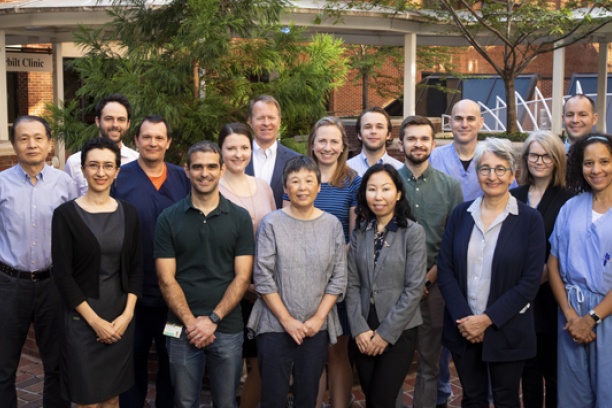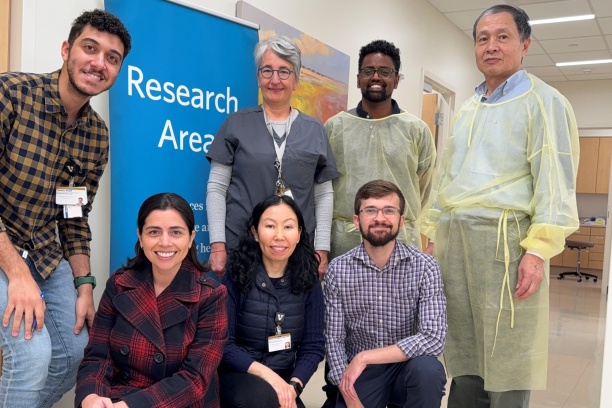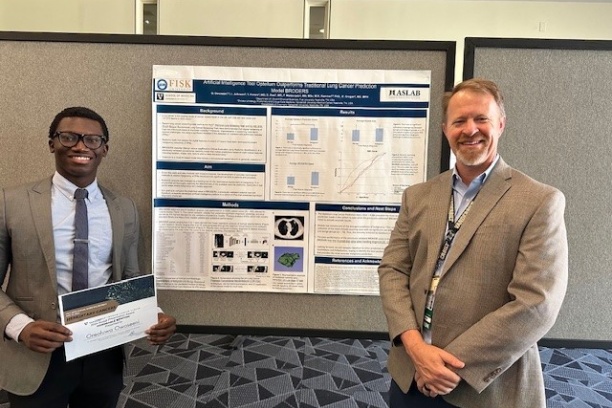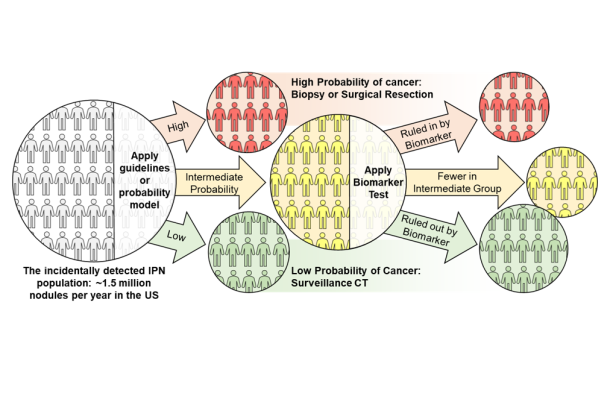Inspired by Patients, Driven by Science
TREAT 2.0 Model
Indeterminate pulmonary nodules (IPNs) suspicious for lung cancer are common in clinical practice. The probability of cancer drives management decisions and depends on age, smoking, size, positron emission tomography (PET) avidity, growth, and the clinical setting, among other variables. The TREAT 2.0 model is a web-based tool that provides reliable risk predictions for IPNs being evaluated in lung nodule or surgery clinics and maintains accuracy with incomplete input of the most common missing variables arising within clinical practice. It can assist the clinician for estimating the probability of cancer within their practice.
Godfrey CM, Shipe ME, Welty VF, et al. The TREAT 2.0 Model: A Lung Cancer Prediction Model for Indeterminate Nodules Referred for Specialist Evaluation. Chest. 2023/06/17/ 2023.
Disclaimer: This tool is intended to supplement, not replace, the clinical judgment of qualified healthcare professionals. The ultimate responsibility for patient care, including diagnoses, treatment decisions, and overall management, rests with the attending physician and healthcare team. The accuracy of the model relies on the quality and representativeness of the data it was trained on. Biases may exist in the training data, potentially impacting the model's performance, especially for certain populations or specific risk factors not fully captured in the data. This tool is not a substitute for professional medical advice, diagnosis, or treatment. Always consult with a licensed healthcare provider before making any decisions related to patient health, treatment plans, or medications. Health-related information and best practices evolve frequently. Information presented by the prediction model may become outdated, incomplete, or incorrect.
National Lung Cancer Screening Day
On Nov. 9, 2024, the MASLAB's research team participated in the National Lung Cancer Screening Day for the third year. On this day, screening and imaging centers across the country screen members of their community for lung cancer. During the 2024 event held at VUMC's One Hundred Oaks clinic in Nashville, at least 15 patients at high risk for lung cancer received a low-dose CT scan for the early detection of lung cancer at Vanderbilt. MASLAB saw a dozen research patients for the study that day.
We encourage patients at high risk for lung cancer to understand that screening can be a proactive step towards your own health. If you or someone you know could benefit from screening, go to vanderbilthealth.com/program/lung-cancer-screening or call (615) 322-0580 to schedule an appointment at one of our seven convenient screening centers at Vanderbilt locations in Middle Tennessee.

Stephen Deppen, PhD, and Yency Forero Martinez, MD, from the MASLAB, along with other collaborators, presented "Pathfinding Clinically Useful Early Diagnostics From Bench to Bedside: A Hands On Workshop" at the International Association for the Study of Lung Cancer 2024 World Conference on Lung Cancer held Sept. 7-10.




